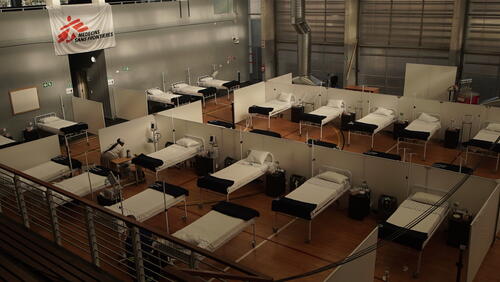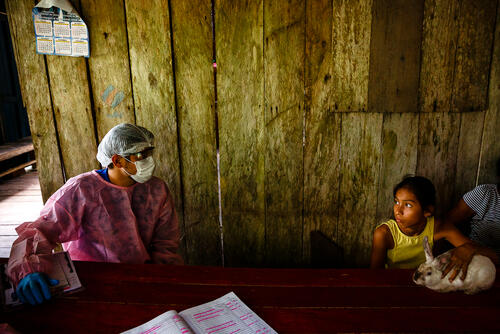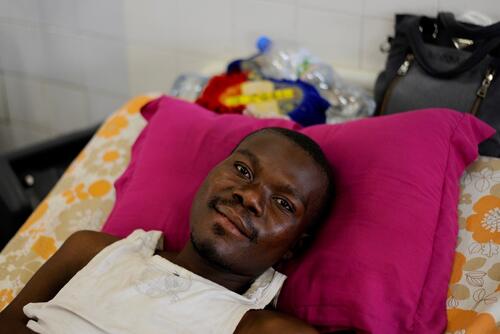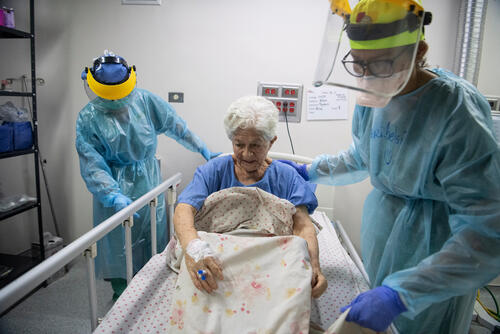Khayelitsha, near Cape Town, was the first township in South Africa to record a confirmed case of COVID-19 in late March. Since then, the township has been the worst-hit community. Over half of Khayelitsha’s estimated 500,000 residents live crowded together, in shacks and informal housing.
In this community, unemployment sits at 42 per cent of the population, while 60 per cent of residents lack running water in their homes. Amidst the extreme poverty, COVID-19 infections have risen from around 25 new infections daily in May, to over 150 new infections daily in June - an alarming 600 per cent increase.
As COVID-19 continues to spread, and the wards in Khayelitsha District hospital have filled up with suspected and confirmed cases, we are helping increase local healthcare capacity.Dr Eric Goemaere, COVID-19 project leader in Khayelitsha
In May, South Africa’s Health Minister warned that with the current infection rate, South Africa would surpass its hospital bed capacity, potentially by the end of June. The Khayelitsha community has borne the brunt of COVID-19 infections in the country, spurring Médecins Sans Frontières (MSF) to develop a 60-bed overflow treatment facility in a field hospital next to the district hospital.
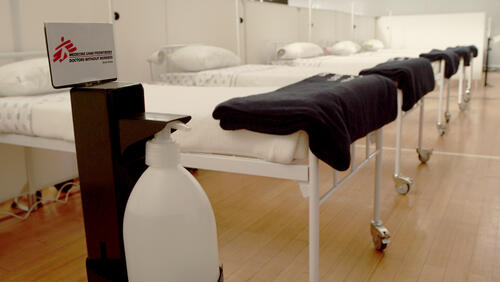
The field hospital will manage moderate to severe COVID-19 patients in support of the local hospital.
“As COVID-19 continues to spread, and the wards in Khayelitsha District hospital have filled up with suspected and confirmed cases, we are helping increase local healthcare capacity to meet these urgent needs – this will help save lives,” says Dr Eric Goemaere, COVID-19 project leader in Khayelitsha. “Given that patients will be suffering from respiratory distress, all beds will ultimately be equipped with oxygen concentrators.”
MSF opened the Khayletisha Field hospital on 1 June, in the presence of the Minister of Health. A day later, the field hospital received 24 COVID-19 patients from the local hospital.
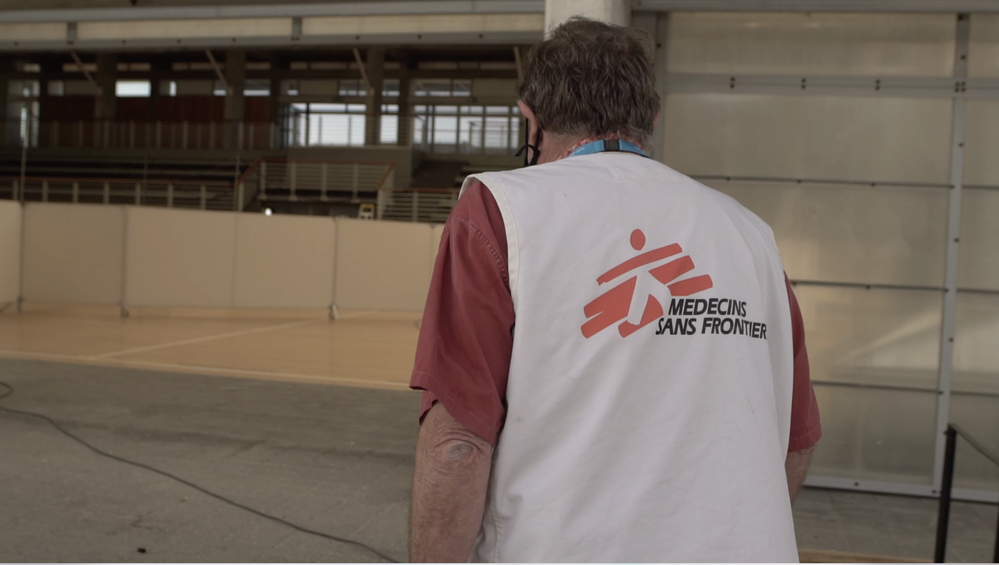
MSF opens Khayelitsha Field hospital for COVID-19
Maintaining care for people living with HIV and TB
“We are here to help cope with a major humanitarian emergency,” says Nompumelelo Zokufa, a Health Promotion Manager with MSF in Khayelitsha. “But we are not just talking about COVID-19; we are working to provide treatment for COVID while maintaining our services for people with two of the most prevalent chronic diseases, HIV and TB.”
MSF has worked in the Khayelitsha community for over 20 years, developing innovative strategies for care at all stages of the treatment process for people living with HIV and/or drug-resistant TB. As the health system becomes overwhelmed by COVID-19, HIV and TB programmes have been disrupted.
We are not just talking about COVID-19; we are working to provide treatment for COVID while maintaining our services for people with two of the most prevalent chronic diseases, HIV and TB.Nompumelelo Zokufa, Health Promotion Manager
Restriction of movement to reduce the spread of COVID-19, in addition to patients being afraid to leave their homes to pick up their medicine from clinics, or even get tested due to the risk of coronavirus infection, means that fewer people visit health centres.
It’s also likely that many of those who arrive at healthcare facilities with TB are misidentified as COVID-19 suspects, as the symptoms are similar.
“The more we learn about COVID-19, the better we can adjust our response,” explains Dr Laura Trivino, MSF medical coordinator in South Africa. “We now see that essential healthcare, including HIV and TB services, have been negatively impacted across the board.”
Adapting to the challenges of COVID-19
South Africa’s Department of Health, with the help of MSF and other partners, has been attempting to find a balance between addressing COVID-19 while ensuring that HIV and TB are not forgotten.
“The COVID-19 response aims to separate people, especially those at high risk from severe COVID-19 disease, from the risks,” says Trivino. “One way of doing this is to move certain services outside of health centres, which are potential infection hotspots.”
The COVID-19 response aims to separate people, especially those at high risk from severe COVID-19 disease, from the risks... one way of doing this is to move certain services outside of health centres.Dr Laura Trivino, MSF medical coordinator in South Africa
“In practice, MSF has been helping local authorities to give HIV and TB patients longer medicine refills, even supporting the delivery of medicines to their homes,” Trivino says. “We also supported screening for COVID-19 at facilities as a way of preventing those with COVID-19 from infecting other clinic-goers.”
But in order to prevent COVID-19 measures from completely disrupting HIV and TB services, it is important that HIV and TB testing is quickly and effectively integrated into the COVID-19 response.
“We have been supporting the Department of Health to do this, because we can’t afford to lose the ground we’ve gained over the last years on HIV and TB,” says Trivino. “We are all learning together, applying our past experiences in dealing with epidemics, and ensuring that the community is always at the centre of everything we do.”




